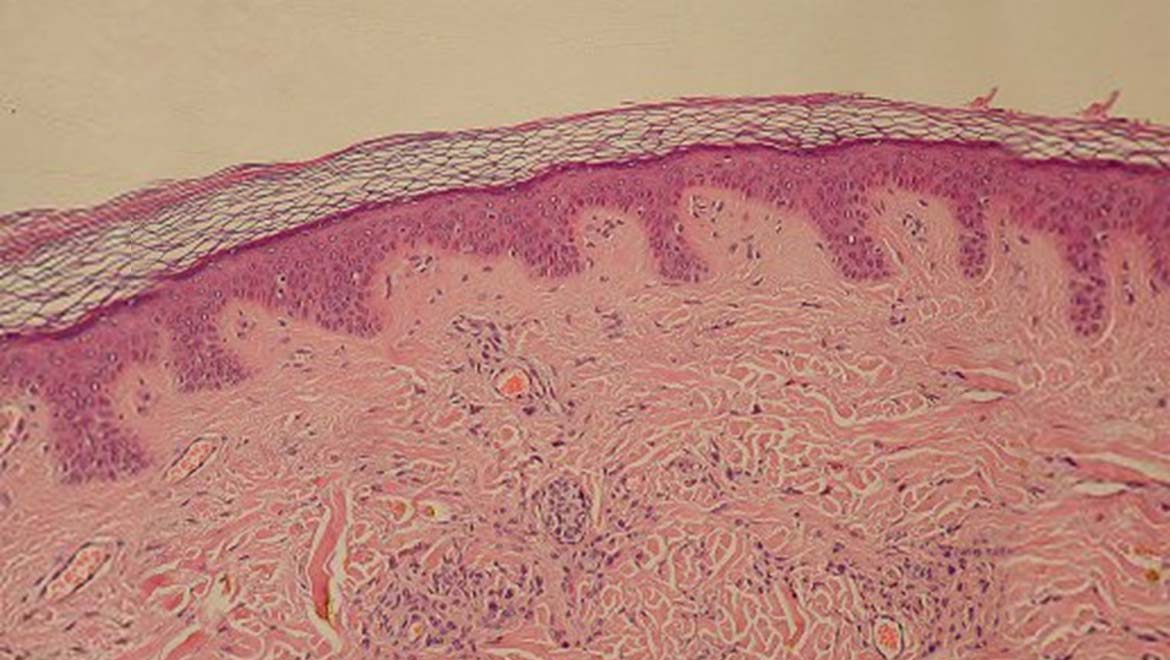The Fascinating World Of The Human Skin: The Biggest Organ In The Body
The human body is a complex and wondrous creation, intricately designed to function in harmony. Among its many components, one organ stands out not only for its size but also for its essential roles in our survival and well-being. That organ is the skin, which is recognized as the biggest organ in the body. Covering our entire body, the skin acts as a barrier, protecting us from external threats while regulating body temperature and enabling the sense of touch. Understanding the importance and functions of this remarkable organ is crucial for appreciating the body's overall health.
With an average surface area of around 20 square feet for adults, the skin is not only the largest organ by surface area but also by weight, constituting about 15% of a person's total body weight. This makes it a vital component of our anatomy. The skin is composed of multiple layers, each performing specific functions that contribute to the overall health of the body. From providing protection against pathogens to enabling sensation, the skin plays a multifaceted role in our daily lives.
Moreover, the skin is often a reflection of our internal health and well-being. Changes in skin appearance can signal underlying health issues, making it essential to pay attention to its condition. In this article, we will delve deeper into the wonders of the skin, exploring its functions, layers, and how we can maintain its health throughout our lives.
What Are the Layers of the Skin?
The skin is composed of three primary layers, each serving distinct functions:
- 1. Epidermis: The outermost layer, providing a barrier against environmental hazards.
- 2. Dermis: The middle layer, housing blood vessels, hair follicles, and connective tissue.
- 3. Hypodermis: The deepest layer, consisting of fat and connective tissue that insulates and cushions the body.
How Does the Skin Protect Us?
The skin acts as the first line of defense against pathogens, chemicals, and physical injuries. It contains specialized cells that help recognize and combat foreign invaders, preventing infections. Moreover, the skin's barrier function minimizes water loss, maintaining hydration and overall health. The presence of melanin in the skin also protects against harmful UV radiation, reducing the risk of skin cancer.
What Role Does the Skin Play in Sensation?
The skin is equipped with various sensory receptors that allow us to perceive touch, temperature, and pain. These receptors relay information to the brain, enabling us to react to our environment. The sense of touch, facilitated by the skin, is crucial for social interactions and emotional connections.
How Can We Maintain Healthy Skin?
Maintaining healthy skin is essential for overall well-being. Here are some tips to keep your skin in optimal condition:
- Stay Hydrated: Drinking plenty of water helps keep the skin moisturized.
- Follow a Skincare Routine: Cleanse, exfoliate, and moisturize regularly to remove impurities.
- Protect from UV Rays: Use sunscreen to shield your skin from harmful radiation.
- Eat a Balanced Diet: Nutrient-rich foods contribute to healthy skin.
- Avoid Smoking and Excessive Alcohol: These habits can damage the skin and accelerate aging.
What Are Common Skin Conditions?
Despite its protective functions, the skin can be susceptible to various conditions, including:
- Acne: A common condition caused by clogged pores.
- Eczema: A chronic condition characterized by itchy and inflamed skin.
- Psoriasis: An autoimmune disorder that leads to rapid skin cell production.
- Skin Cancer: Abnormal skin cell growth, often linked to UV exposure.
How Does Aging Affect the Skin?
As we age, the skin undergoes various changes, including reduced elasticity, dryness, and the appearance of wrinkles. Factors such as sun exposure, genetics, and lifestyle choices play a significant role in how our skin ages. To combat these effects, it's essential to adopt a skincare routine that addresses the unique needs of aging skin.
Conclusion: Embracing Our Skin, the Biggest Organ in the Body
The skin, as the biggest organ in the body, is a remarkable structure that performs essential functions for our survival. From protection to sensation and regulation, our skin deserves the utmost care and attention. By understanding its layers, functions, and the importance of skincare, we can ensure that this incredible organ remains healthy throughout our lives. Embrace your skin, and make choices that promote its well-being, as it is a vital part of who you are.
Understanding La Rama Ejecutiva: The Executive Branch Of Government
Effortlessly Transfer Files: The Ultimate Guide To SCP Linux To Windows
Unveiling The Financial Success Of Joseph Prince: His Net Worth

Scientists Find Largest “New Organ” In The Body Evolving Science

World's Largest Organ Located in the Convention Center on … Flickr

THE SKIN our largest organ M1 SELECT